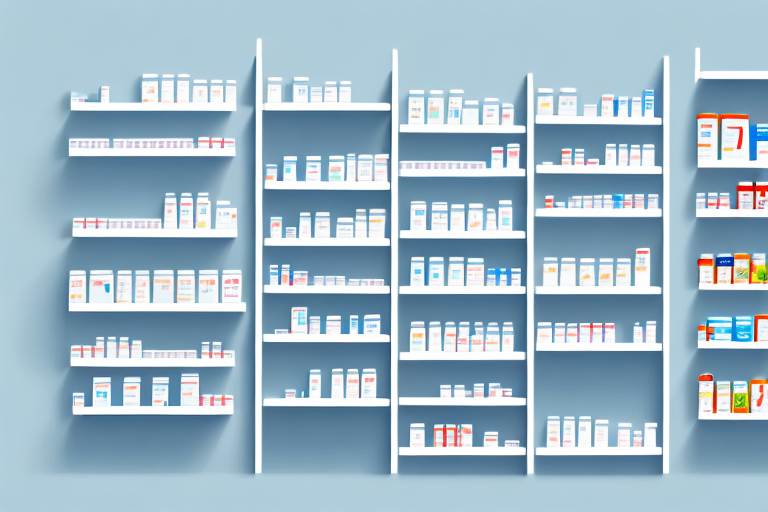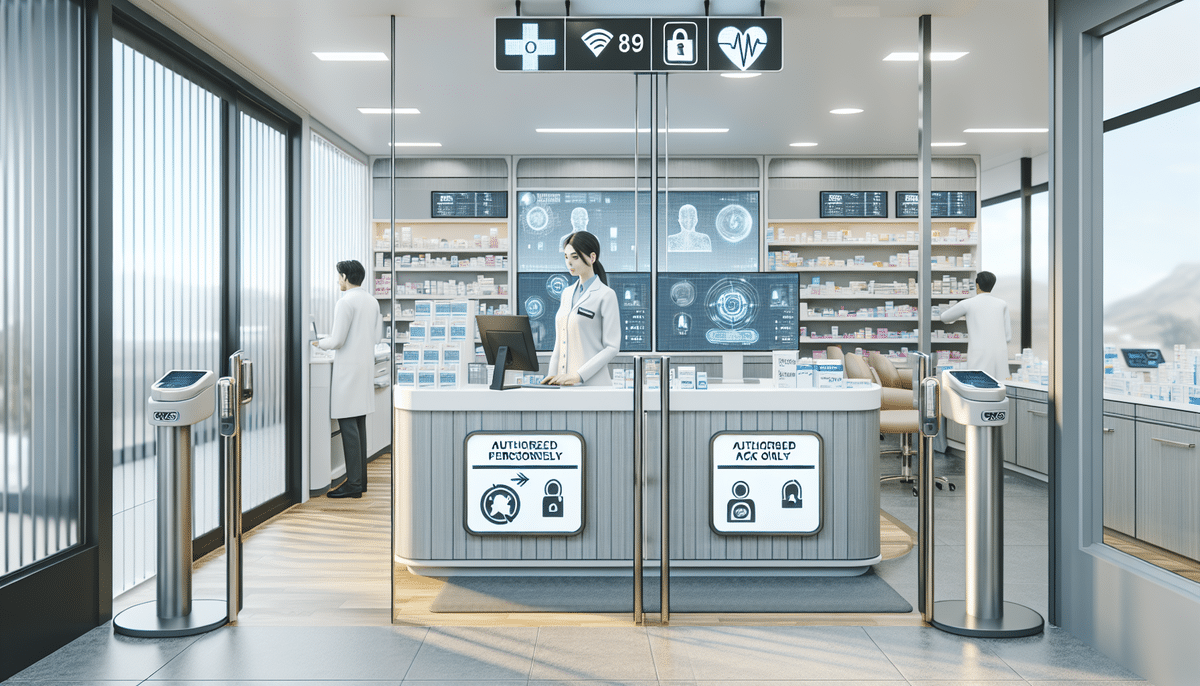Accessing Quality Medication: The Role of Pharmacy Care in Your Health
Access to quality pharmacy care is a critical component of modern healthcare. According to the Centers for Disease Control and Prevention (CDC), effective pharmacy services contribute significantly to improved health outcomes by ensuring safe and efficient use of medications.
Pharmacy care encompasses various services beyond dispensing medication:
- Medication Safety: Pharmacists ensure that medications are appropriate for your condition, checking for potential drug interactions and contraindications.
- Patient Education: They educate patients on how to take medications correctly, potential side effects, and the importance of adherence to prescribed regimens.
- Chronic Disease Management: Pharmacists assist in managing chronic conditions like diabetes and hypertension through medication management and lifestyle counseling.
- Cost Management: By providing information on generic alternatives and insurance coverage, pharmacists help patients reduce medication costs.
Ensuring access to quality pharmacy care not only promotes individual health but also alleviates the burden on the broader healthcare system by reducing hospital readmissions and preventing medication-related issues.
The Role of Pharmacists in Healthcare
Pharmacists are integral members of the healthcare team, offering expertise in medication management and patient care. Their role extends beyond dispensing medications to include the following responsibilities:
Medication Management
Pharmacists collaborate with healthcare providers to optimize medication therapy. This involves:
- Reviewing patient medications for efficacy and safety.
- Adjusting dosages based on individual patient needs and responses.
- Monitoring for and preventing adverse drug reactions.
Patient Counseling and Education
Pharmacists provide essential education to patients, ensuring they understand:
- How to properly take their medications.
- Potential side effects and how to manage them.
- The importance of adherence to prescribed treatment plans.
Public Health Initiatives
Pharmacists play a pivotal role in public health by:
- Administering vaccines and conducting immunization programs.
- Providing smoking cessation counseling and support.
- Participating in disease prevention and health promotion activities.
As healthcare evolves, pharmacists continue to adapt, integrating new technologies and practices to enhance patient care and medication safety.
Choosing the Right Pharmacy for Your Needs
Choosing the appropriate pharmacy is essential to ensure you receive the best possible care and support for your medication needs. Consider the following factors when selecting a pharmacy:
Location and Accessibility
Proximity to your home or workplace can make it easier to pick up prescriptions. Additionally, assess the pharmacy’s hours of operation to ensure they align with your schedule.
Range of Services Offered
Different pharmacies offer varying services, such as:
- 24-hour service availability.
- Comprehensive medication management programs.
- Home delivery services.
Insurance Compatibility and Pricing
Verify that the pharmacy accepts your insurance plan and inquire about pricing on medications. Some pharmacies offer discount programs or have competitive pricing on generics.
Reputation and Customer Service
Research the pharmacy’s reputation by reading reviews and seeking recommendations from healthcare providers. Friendly, knowledgeable staff can significantly enhance your pharmacy experience.
For more information on selecting a pharmacy, refer to resources like the National Council for Prescription Drug Programs (NCPDP).
Medication Adherence and Management
Adhering to your medication regimen is vital for managing health conditions effectively. Non-adherence can lead to worsening symptoms, increased hospitalizations, and higher healthcare costs.
Strategies for Improving Medication Adherence
- Use a Pill Organizer: Keeping medications organized can help prevent missed doses.
- Set Reminders: Utilize alarms or smartphone apps to remind you to take your medication on time.
- Establish a Routine: Incorporate taking medications into your daily schedule, such as with meals or before bedtime.
- Regular Consultations: Schedule regular appointments with your pharmacist to review your medication regimen and address any concerns.
Pharmacist’s Role in Medication Management
Pharmacists assist in medication management by:
- Conducting medication therapy management (MTM) sessions to evaluate and optimize drug therapy.
- Identifying and resolving medication-related issues.
- Providing personalized counseling to enhance understanding and adherence.
According to a study published in the Journal of the American Pharmacists Association, effective pharmacist intervention can significantly improve medication adherence rates among patients with chronic diseases (source).
Enhancing Your Pharmacy Experience
Maximizing the benefits of pharmacy care involves proactive engagement and effective communication with your pharmacist. Here are some tips to enhance your pharmacy experience:
Preparing for Your Pharmacy Visit
- Bring a complete list of all medications, including over-the-counter drugs and supplements.
- Be ready to discuss any medical conditions and allergies you have.
- Prepare a list of questions or concerns regarding your medications.
During the Consultation
- Ask questions about how to take your medications properly.
- Inquire about potential side effects and how to manage them.
- Discuss any difficulties you’re experiencing with your medication regimen.
Post-Consultation Practices
- Double-check your medications before leaving the pharmacy to ensure accuracy.
- Store medications as directed to maintain their efficacy.
- Follow up with your pharmacist if you encounter any issues or have additional questions.
Implementing these practices can lead to a more effective and satisfying pharmacy experience, ultimately contributing to better health outcomes.
Managing Medications Safely and Effectively
Ensuring the safe and effective management of medications is paramount to achieving desired health outcomes. Proper medication management involves not only taking medications as prescribed but also understanding their purpose and potential interactions.
Best Practices for Medication Management
- Adhere to Prescribed Schedules: Follow the dosage and timing as directed by your healthcare provider.
- Use a Pill Organizer: Organizing medications can help prevent missed or double doses.
- Maintain an Updated Medication List: Keep a current list of all medications, including dosages, and share it with your healthcare providers.
- Be Aware of Interactions: Understand how your medications interact with each other and with foods or supplements.
- Proper Storage: Store medications as per the instructions to maintain their effectiveness and prevent accidents.
Proper Disposal of Medications
Disposing of unused or expired medications safely is crucial to prevent misuse and environmental contamination. Follow these steps for proper disposal:
- Utilize pharmacy take-back programs if available.
- Follow local government guidelines for medication disposal.
- Never flush medications down the toilet unless specifically instructed.
For more detailed guidelines on medication disposal, refer to the U.S. Food and Drug Administration (FDA).
Common Medication Mistakes and How to Address Them
Medication errors are a significant concern that can lead to adverse health outcomes. Common mistakes include missing doses, taking incorrect dosages, and combining medications without proper consultation.
Common Medication Mistakes
- Missing Doses: Forgetting to take medication at the prescribed times.
- Incorrect Dosages: Taking more or less than the recommended dosage.
- Drug Interactions: Combining medications that may interact negatively with each other.
- Ignoring Instructions: Not following specific instructions regarding medication intake, such as taking with food or avoiding certain activities.
How to Address Medication Mistakes
If you realize you've made a medication mistake, it's essential to take immediate action:
- Contact Your Pharmacist or Healthcare Provider: They can provide guidance on the next steps and adjust your medication regimen if necessary.
- Use a Medication Tracker: Utilize apps or journals to keep track of your medication schedule and dosages.
- Educate Yourself: Ensure you fully understand how to take your medications correctly by asking your pharmacist questions.
- Set Up Reminders: Implement systems like alarms or pill organizers to help you stay on track.
By being proactive and vigilant, you can minimize the risk of medication errors and maintain optimal health.
The Future of Pharmacy Care and Advocacy
The field of pharmacy care is continually evolving with advancements in technology and changes in healthcare policies. Staying informed about these trends can help both pharmacists and patients adapt to the future landscape of healthcare.
Trends and Innovations in Pharmacy Care
- Telepharmacy: The use of telecommunication technologies to provide pharmacy services remotely, increasing access in underserved areas.
- Personalized Medication Therapy: Tailoring medication regimens based on individual genetic profiles and health data.
- Digital Health Integration: Utilizing mobile apps and digital platforms for medication reminders, tracking adherence, and facilitating communication between patients and healthcare providers.
Advocating for Expanded Access
Ensuring that all individuals have access to quality pharmacy care requires advocacy and policy development. Here are ways to advocate for improved access:
- Engage with local and national healthcare advocacy groups.
- Support policies that promote the integration of pharmacists into primary care teams.
- Raise awareness about the importance of pharmacy care in community health.
By advocating for expanded access to pharmacy care, you contribute to a more inclusive and effective healthcare system that benefits everyone.
Conclusion
Access to quality medication is essential for taking care of your health. By understanding the role of a pharmacist, choosing the right pharmacy, enhancing your pharmacy experience, managing your medication safely, avoiding common mistakes, and staying informed about future trends, you can ensure optimal health outcomes. Remember, your pharmacist is an essential partner in your healthcare journey. Work with them to ensure that you have access to quality pharmacy care.






















